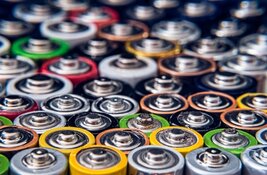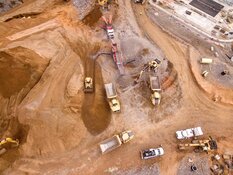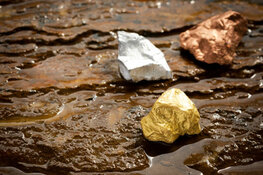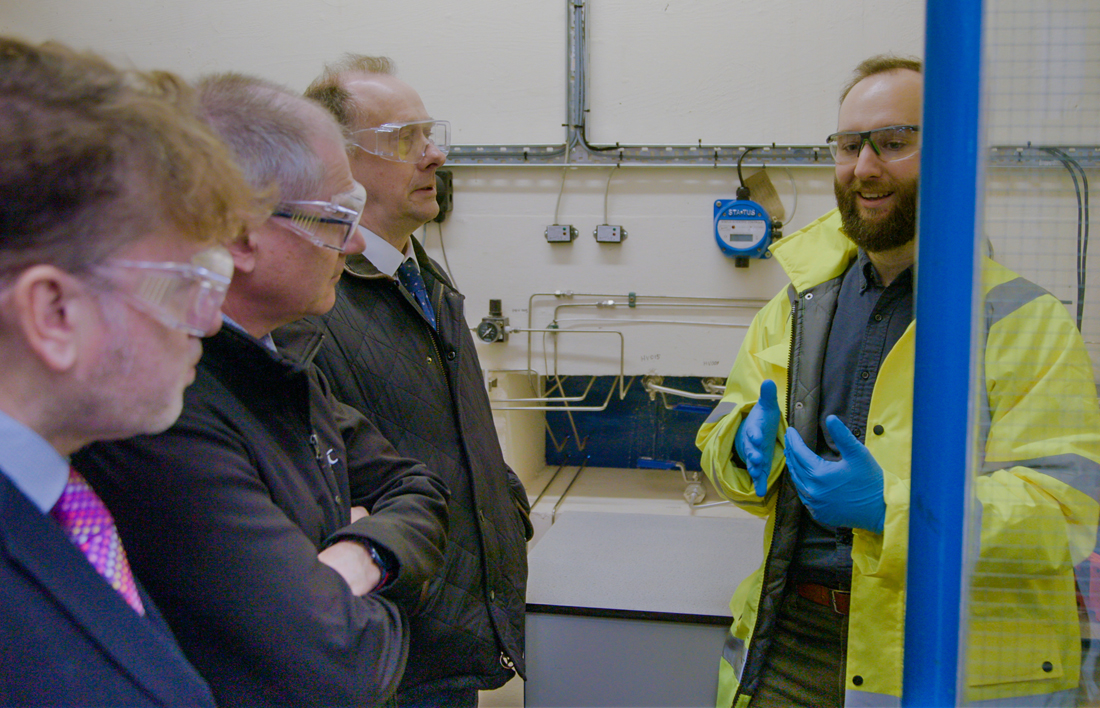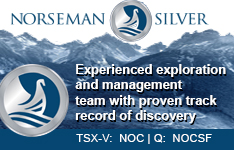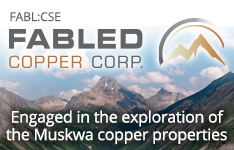A potentially "game-changing technology" could disrupt the lithium market, increasing the supply just as it's needed for the ramp up to electric vehicles (EVs) and the new clean economy.
Several techniques for Direct Lithium Extraction (DLE) from lithium brines could "significantly" impact the industry and revolutionize production, capacity, timing, environmental impacts, and permit issues, wrote a series of Goldman Sachs analysts in a research note released in April.
"Much like shale did for oil, DLE has the potential to significantly increase the supply of lithium from brine projects, nearly doubling lithium production/yield (taking recoveries from 40-60% to 70-90%+) and improving project returns," the analysts wrote.
Additional benefits include sustainability and environmental social governance (ESG) credentials for implementors since the method vastly reduces the land and water use of evaporating ponds.
"A number of proven DLE technologies are emerging and being tested at scale," the analysts noted. "Though the application of technologies used in DLE processes may be fairly new to the lithium industry, many are already utilized across other commodities."
You can invest in several companies on the front lines working with the new technology and using it to create innovative lithium extraction solutions, including Volt Lithium, E3 Lithium, and Lithos Energy Ltd.
The Catalyst: A 'Pivotal' Role in Reducing Carbon Footprints
Battery storage will play a "pivotal" role in reducing carbon footprints globally, according to Energy5. "As the demand for clean energy continues to rise, it is crucial to invest in research, development, and implementation of battery storage technologies," the company wrote. "Embracing such innovative solutions will not only help combat climate change but also create a more resilient and sustainable energy infrastructure for generations to come."
A soft, silvery metal with highly reactive and flammable properties, lithium is also used to strengthen alloys, as a high-temperature lubricant, and as a drug to treat bipolar disorder.
The market for the metal is projected to grow from US$2.5 billion in 2023 to US$6.4 billion by
2028 at a compound annual growth rate (CAGR) of 20.4% from 2023 to 2028, according to a report by Markets and Markets.
"The market has observed stable growth throughout the study period and is expected to continue with the same trend during the forecast period," the report said.
Much of the world's supply of the metal comes from South America's "Lithium Triangle," a vast area of salars (salt-encrusted depressions) at the intersection of Argentina, Bolivia, and Chile.
"This concentration poses a potential risk to the global supply chain of lithium, impacting the availability and pricing of lithium metal," Markets and Markets noted. "The reliance on a few countries for lithium production increases vulnerability to geopolitical tensions, trade disruptions, and regulatory changes. Any disruptions in these countries' production or export capabilities can lead to supply shortages and market volatility."
Technology 'Underappreciated,' Analysts Say
New methods of extraction like DLE can make it easier for operations to compete in other countries featuring extractable lithium, including Canada.
The Goldman Sachs analysts noted that brine makes up nearly two thirds of lithium resources worldwide but only 40% of production. The rest of the resource comes from mining.
DLE consists of several chemical processes that allow for fast isolated lithium production into saleable forms of lithium. There are three main methods:
- Asorption: Using solvents to adhere to the lithium for removal.
- Ion exchange: Separates ionic contaminants through physiochemical processes.
- Solvent extraction: Capturing lithium chemically or physically and transforming it from brine.
While the traditional process of brine extraction involves solar evaporation in huge ponds, DLE's filtering processes cut out that step. According to the Goldman Sachs report, it reduces the time needed for lithium production from moths to years with evaporation to just hours to days for DLE. The analysts said capital outlay could be higher for the equipment necessary, but that it would be worth it: evaporation recovers 40% to 60% of the lithium from brine, while DLE can recover as much as 70% to 90%.
"While we believe there is increasing awareness of the technological implications of DLE around increased recoveries/production and accelerated ramp-up of projects, the economics of its implementation, along with the implementation of the various technologies in other mineral commodity extraction, remain underappreciated, in our view," the analysts wrote.
Volt Lithium Corp.
Calgary based Volt Lithium Corp. is a lithium development and technology company aiming to be North America’s first commercial producer of lithium hydroxide and lithium carbonates from oilfield brine.
Just this month, the company released its Preliminary Economic Assessment (PEA) of its 430,000-acre Rainbow Lake lithium project in Alberta.
 Streetwise Ownership Overview*
Streetwise Ownership Overview*
Volt Lithium Corp. (VLT:TSV;VLTLF:US)
The reservoir there is estimated at 99 billion barrels of lithium-infused brine with concentrations up to 121 mg/L, and the company said its proprietary DLE technology is giving recoveries of up to 90%.
According to the PEA, production will grow from 1,000 to over 23,000 metric tonnes per year over a 19-year period with a pre-tax CA$1.5 billion NPV at an 8% discount rate and IRR of 45% (after-tax CA$1.1 billion NPV and IRR of 35%).
Volt said on its website that commercial production is expected in the second half of 2024.
While lithium prices have retreated since September, analyst Michael Ballanger called the PEA results "impressive, at least on paper."
"I continue to hold VLT/VLTLF on the assumption that if CEO Alex Wiley can execute, the stock will be a substantial outperformer," Ballanger wrote on Dec. 19.
According to Reuters, management and insiders own approximately 20.15% of the company. President and CEO James Alexander Wylie owns 11.44%, Director Martin Scase owns 6.47%, Director Warner Uhl owns 1.16%, CFO Morgan Tiernan owns 0.51%, Director Maury Dumba owns 0.43%, and Director Kyle Robert Hookey owns 0.14%.
Reuters reported that institutions own 1.01% of the company with 1 million shares in the form of U.S. Global Investors, Inc.
There are 99.46 million shares outstanding with 79.42 million free float traded shares, Reuters said. The company has a market cap of CA$28.67 million and trades in a 52-week range of CA$0.07 and CA$0.55.
E3 Lithium Corp.
E3 Lithium Corp. also published a PEA for its claims in south-central Alberta this year and upgraded its resource to 16 million tonnes lithium carbonate equivalent (LCE) measured and indicated.
It also constructed a first-of-its-kind DLE field pilot plant in the province using a "proprietary sorbent designed to be highly selective towards lithium ions."
 Streetwise Ownership Overview*
Streetwise Ownership Overview*
E3 Lithium Ltd. (ETL:TSXV;EEMMF:US)
"It quickly and efficiently reduces large volumes of low-grade brine into a high-grade lithium concentrate in one step, simultaneously removing nearly all impurities," the company said on its website. "This produces a very clean product for the development of high purity lithium compounds used in Li-ion batteries."
Analysts Alina Islam and David Talbot of Red Cloud Securities noted that testing has produced 99.78% pure battery-grade lithium hydroxide monohydrate (LHM) using concentrate from the DLE pilot plant.
"We view this update positively, as LHM with greater than 99.5% purity and low magnetic impurities is generally accepted to be suitable for battery manufacturing," the analysts wrote on Nov 1. "While this is a major de-risking step, we believe investors continue to remain focused on the operations of the field pilot plant and the eventual scale-up of DLE operations."
The analysts rated the stock a Buy with a CA$13 per share target price, a 482% jump from Tuesday's price of CA$2.23 per share.
E3 said it partnered with the University of Alberta on the development of the sorbent, or a material used to extract oils, to extract the lithium from its brines.
The company said lab results demonstrated over 90% lithium recovery, more than 98% removal of impurities, and a faster process that takes "minutes, not months."
The process also has a much smaller land disturbance footprint and no interaction with freshwater aquifers since the resource is 2,500 meters below the surface.
The lithium market may be down, but the company said the material is already ubiquitous, and more will be needed.
"You can't find a battery now that's in a high-power device that's not lithium," President, Chief Executive Officer, and Director Chris Doornbos said during a recent conference call with analysts. "From your power tools to your scooters, everything is now using lithium."
Nearly 4% of the company is owned by institutions, according to Reuters. About 3% is owned by strategic investors.
Top investors include Fidelity Management & Research Co. with 2.89%, the CEO Doornbos with 1.83%, U.S. Global Investors with 0.56%, Mike O'Hara with 0.42%, and John Pantazopoulos with 0.35%.
The company's market cap is C$167.4 million with about 75 million shares outstanding. It trades in a 52-week range of CA$5.725 and CA$1.82.
Lithos Energy Ltd.
Lithos Technology LLC, a wholly owned subsidiary of Lithos Energy Ltd., said its mission is to deliver sustainable lithium production for the new green economy without water-wasting evaporation ponds.
Its AcQUA™ process uses an electro-pressure membrane process to optimize pre-treatment of the raw brines and rapidly concentrates lithium chloride with multiple Direct Lithium Extraction (DLE) techniques. The company said its systems are fully commercialized and operate in the field at scale, processing a feed of 10,000 barrels a day.
The process "avoids the typical challenges faced by chemically intensive DLE technologies currently in development phase," the company said on its website.
Lithos Technology in September announced it has signed a non-binding term sheet with Sand Spirit LLC to develop, construct, own, and operate a lithium hydroxide pilot production facility in Alabama.
"The Crimson Tide facility will be the first lithium hydroxide monohydrate production facility in the southeastern United States," said Lithos Chief Executive Officer Scott Taylor. "Fortunately, we found a phenomenal partner in Sand Spirit, who brings engineering expertise, a large complex, and the necessary environmental permits to produce LiOH-H20. We can be nimble and quickly get this facility producing LiOH- H20."
Current brine operations destroy up to 2,500 acres of land, consume billions of gallons of water per year, produce hundreds of thousands of tons of carbon dioxide, and take up to two years to evaporate, Lithos said.
After all of that, up to 80% of the initial resource is lost in the process, the company said.
AcQUA reduces water use by up to 98%, according to the company, and has a 40% to 50% estimated lower CAPEX, higher lithium recovery, and a reduced physical and environmental footprint.
Operating margins are modeled at about 78%, and the company estimates the lifetime value of a customer could be more than US$100 million under licensing or sales business models.
About 53% of Lithos is held by insiders and management, the company said. According to Reuters, this includes CEO Taylor with nearly 15% or 12 million shares, Independent Director Michael Westlake with 0.75% or 600,000 shares, and Independent Director Kevin McKenna with 0.05% or 40,000 shares.
According to Reuters, about 16 percent of the company is held by strategic entities. The rest is retail.
Lithos has a market cap of CA$51.5 million with about 81.7 million shares outstanding. It trades in a 52-week range of CA$0.96 and CA$0.485.
| Want to be the first to know about interesting Cobalt / Lithium / Manganese and Battery Metals investment ideas? Sign up to receive the FREE Streetwise Reports' newsletter. | Subscribe |
Important Disclosures:
- Volt Lithium Corp. has a consulting relationship with an affiliate of Streetwise Reports, and pays a monthly consulting fee between US$8,000 and US$20,000.
- As of the date of this article, officers and/or employees of Streetwise Reports LLC (including members of their household) own securities of Volt Lithium Corp. and Lithos Energy Ltd.
- Steve Sobek wrote this article for Streetwise Reports LLC and provides services to Streetwise Reports as an employee.
- The article does not constitute investment advice. Each reader is encouraged to consult with his or her individual financial professional. By opening this page, each reader accepts and agrees to Streetwise Reports' terms of use and full legal disclaimer. This article is not a solicitation for investment. Streetwise Reports does not render general or specific investment advice and the information on Streetwise Reports should not be considered a recommendation to buy or sell any security. Streetwise Reports does not endorse or recommend the business, products, services or securities of any company mentioned on Streetwise Reports.
For additional disclosures, please click here.


